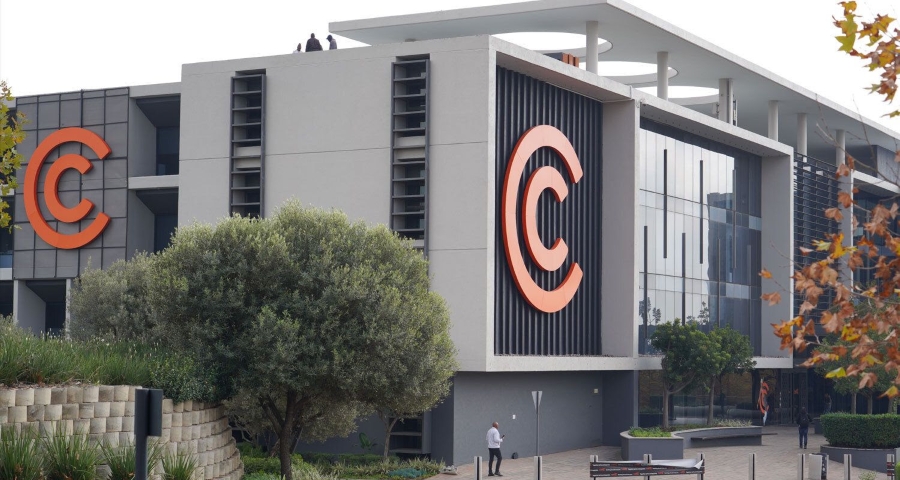South Africa launches first AI Powered Robot Tutor as Kenya’s tech industry makes USD 500 million
South Africa has launched its first Artificial Intelligence powered robot tutor, Iris, to give students personalised lessons.
Developed by local lady innovator Thando Gumede, Iris can teach subjects from Grade R to tertiary education in all 11 official languages. Officials have made it clear that Iris is designed to assist human teachers in the classroom, not to replace them.
The South African Central bank (SARB) is now allowing fintech firms, and not just traditional banks, to access the country’s main system for moving money—the National Payment System (NPS).
This change is meant to encourage new ideas and help more people use financial services, especially in communities that banks don’t fully serve.
To keep everything safe, the central bank has put strict rules in place to protect both the system and consumers’ money.
Kenya Tech takes the money
Kenya’s tech industry is now attracting more money from foreign investors than any other sector, beating traditional areas like banking and manufacturing.
According to a new government survey, foreign capital inflows into the tech industry jumped to USD 500.9 million in 2024, accounting for more than a quarter of all Foreign Direct Investment (FDI).
This big increase in investment happened largely because the government removed an old rule that forced foreign tech companies to give up a 30 percent share of their business to a local partner, making it much more appealing for them to invest in the country.
Egypt’s stock market has released its first mobile app to make it easier for the general public to follow and invest in stocks.
The app provides live data, news, and updates on stock performance, with the goal of encouraging a new generation of everyday people to start investing.
This is part of a larger effort to make the country’s financial system more modern and transparent.
Nokia is working with South Africa’s internet exchange provider, INX-ZA, to give the country a major internet speed boost.
They are upgrading the core equipment with a new 400GE-ready system that helps data travel locally.
This will make the internet faster and more reliable for everyone.
The project will start in Johannesburg and later expand to Cape Town and Durban.
Vodacom Business has teamed up with Google Cloud to offer powerful AI and cloud services to companies across Africa.
This partnership will give businesses a much faster and more reliable connection to Google’s tools, like Google Workspace and its AI coding assistant. Essentially, it will make these services quicker and almost always available for use.
Nigeria’s consumer protection agency (the FCCPC) has set new rules to stop digital loan companies from mistreating borrowers.
These companies must now be completely honest about their loan terms and are banned from accessing a borrower’s private phone data, like contact lists and photos. Any loan app that breaks these rules will be fined up to USD 65,000.
South Africa’s Competition Tribunal has approved a key deal that moves mobile operator Cell C one step closer to being listed on the Johannesburg Stock Exchange (JSE).

The decision allows Cell C to buy back its contract customer division from its main shareholder, Blue Label Telecoms.
This is part of a wider plan by Blue Label to restructure and improve Cell C’s financial health in preparation for a public listing, a possibility that has already caused Blue Label’s own share price to soar this year.
Nigeria tech also takes the money
In Nigeria, the state of Lagos is planning to create a new USD 20 million fund to support its local tech industry.
This money, which will come from a small portion of the state’s yearly budget, will be given to startups, innovation centers, and researchers.
The main goal is to provide them with crucial funding to help them grow, especially since investment from other countries has recently decreased.
MTN Nigeria says it has suffered over 5,400 fibre optic cable cuts between January and July this year, causing widespread network disruptions for customers.
The company, which apologized for the outages, blames the constant damage on widespread road construction projects and rising vandalism, forcing it to carry out continuous repairs to the infrastructure.
Deal Roundup
Uncovered Fund has launched a USD 20 million investment fund to support new tech startups in Africa.
The fund will provide money to startups working in key areas like finance, logistics, and agriculture. It will also connect these startups with large Japanese corporations to help them find new opportunities and enter new markets, even as global startup funding has been slowing down.
CrossBoundary Energy, a Kenyan clean energy company, has received a USD 40 million investment from Impact Fund Denmark (IFDK).
The money will be used to build more solar and battery storage projects for businesses across the continent.
CrossBoundary’s model is unique because it covers all the expensive setup costs, allowing companies to access reliable, clean power without a large upfront payment, which frees up their cash for other needs.
Meanwhile applications are now open for the MEST Africa Challenge (MAC) 2025.
This year, the competition is calling on fintech startups from Ghana, Kenya, South Africa, and six other African nations that are building solutions in areas like digital payments and financial inclusion.
The winner will receive a grand prize of USD 50,000 in equity funding, the opportunity to run a pilot project with Absa Bank, and a spot in the MEST Africa incubation portfolio. Apply by September 26.
The Africa Money & DeFi Summit returns to Accra on September 24–25, bringing together 500+ fintech and Web3 leaders. Applications are open for its Investment Showcase, where selected African startups will pitch to investors for funding and partnerships.

